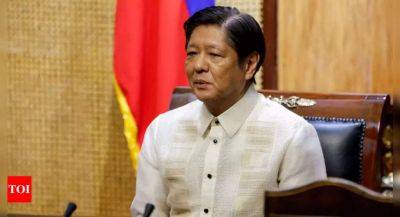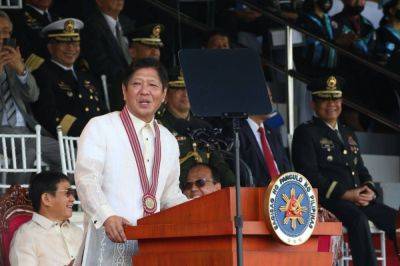Philippines slides down 2 places in 2024 World Press Freedom Index
MANILA, Philippines — The Philippines has sunk two spots to place 134th out of 180 countries in this year's World Press Freedom Index, with media conditions continuing to fall below the standards of a free press even without a government openly hostile to journalists.
The Philippines' slightly lower rating in Reporters Without Borders’ (RSF) annual index on press freedom comes a year after it soared 15 spots to its highest ranking in six years, with the media watchdog noting that President Ferdinand Marcos Jr.'s first six months in office had "loosened constraints on the media."
Based on the incidents monitored by the Center for Media Freedom and Responsibility (CMFR) and the National Union of Journalists of the Philippines (NUJP), more attacks and threats against journalists took place in the first 22 months of Marcos' presidency compared to the same period under Duterte's term.
At least 135 incidents of attacks and threats against media workers took place from July 2022 to April 30, 2024, according to the CMFR and NUJP, more than a third of which (50) were allegedly perpetrated by state agents.
This development reflects warnings by press freedom advocates that Marcos' milder approach to the media — a departure from Duterte's repeated verbal abuse to journalists — is only half the story.
"The adjustment may be a correction and reflects how bad the Duterte administration’s policies towards media were and the initial optimism with the improvements under the Marcos administration," said Jonathan de Santos, NUJP chairperson.
"While we can say that the current administration is not as openly hostile to the press, the policies and strategies used during the Duterte years are still there and journalists in the Philippines are still at risk," he added.
In its country report, the RSF described the Philippines as "one of the region’s most dangerous countries for media professionals."
While the watchdog noted that fewer "violent attacks" have taken place under Marcos, "harassment by means of threats and 'red-tagging' persists."
Red-tagging is the act of labeling people and organizations as rebels, terrorists and enemies of the state. While the practice exploded under






